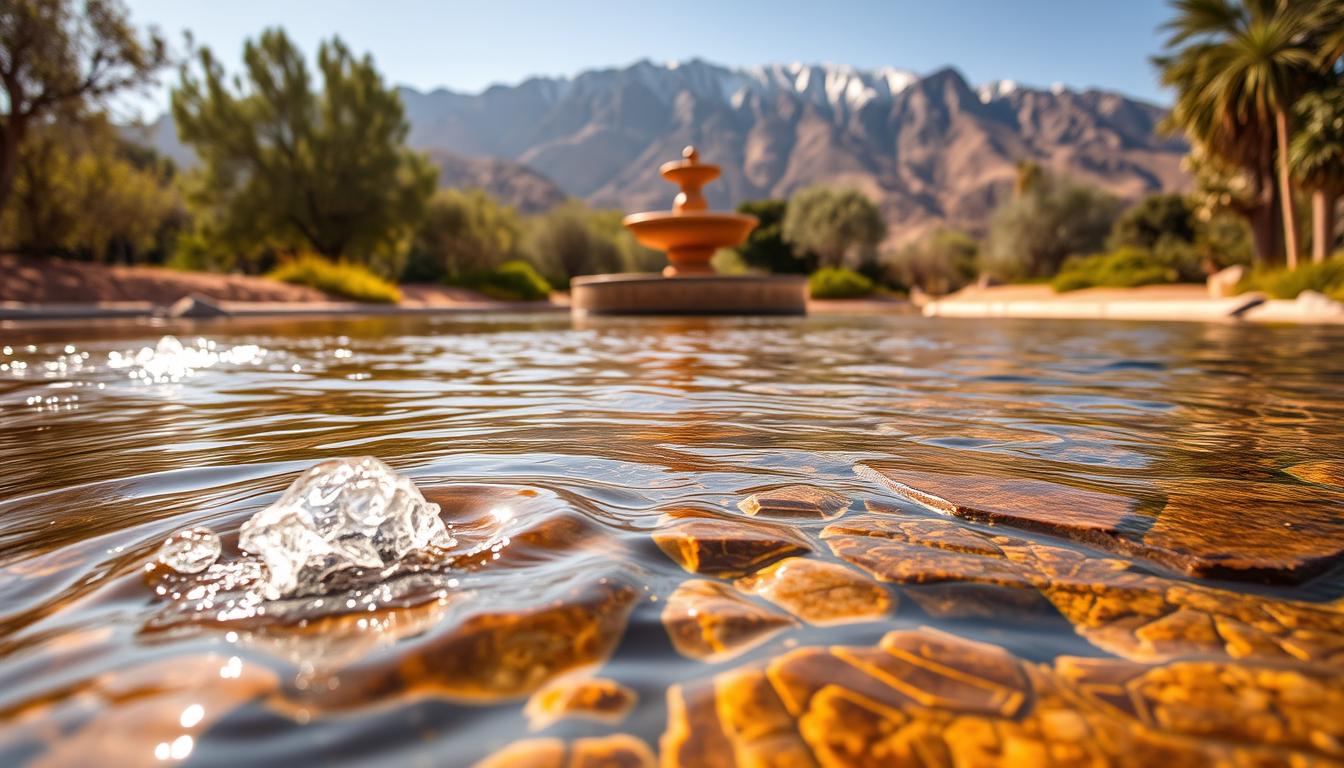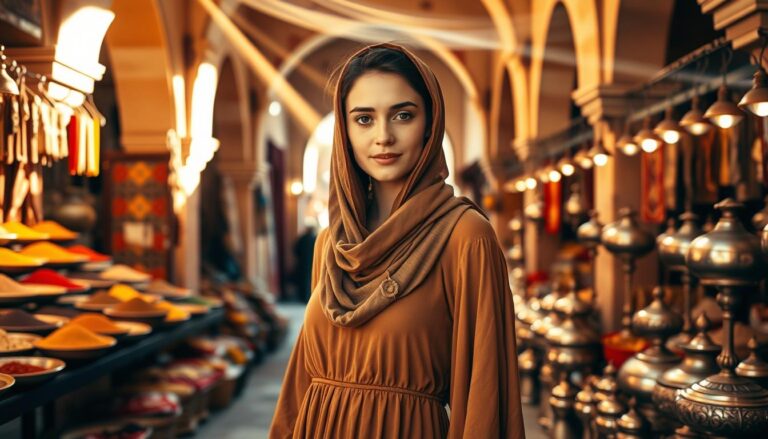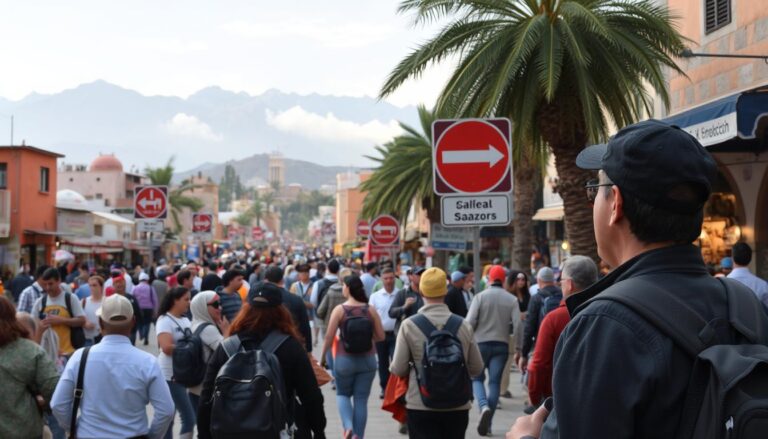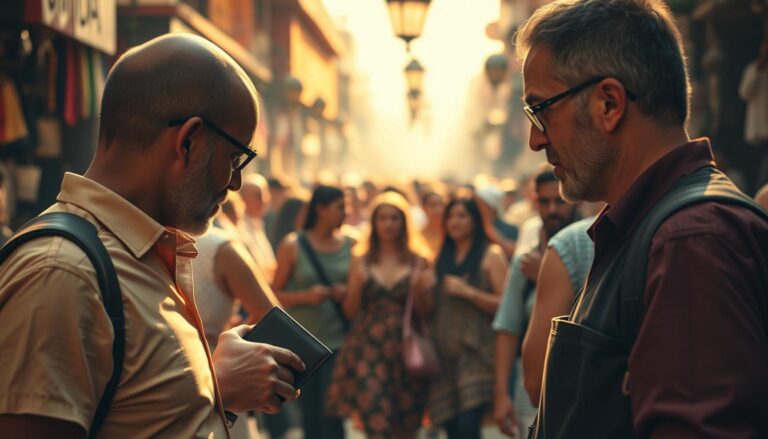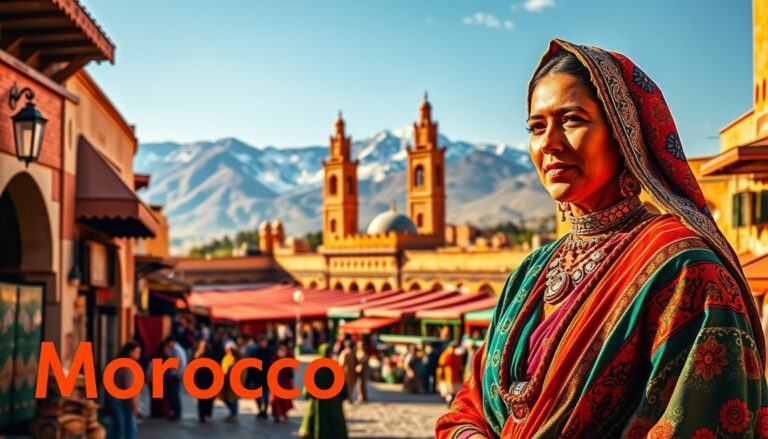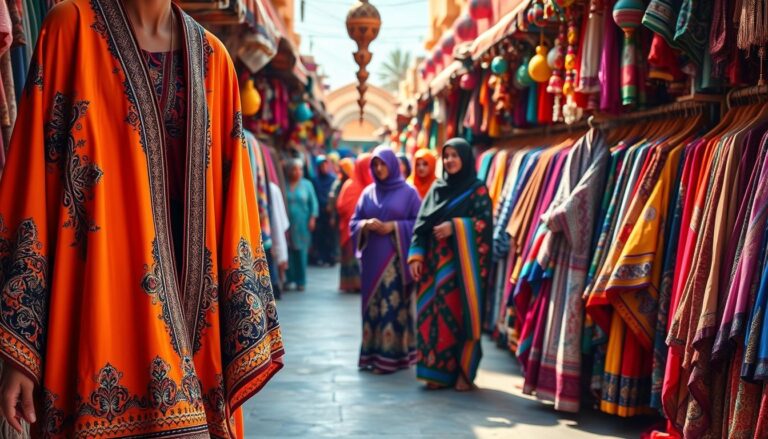Drink Gratefully: Stay Hydrated and Happy in Morocco!
Traveling to Morocco can be exciting, but have you thought about its water safety?
Did you know that bad water sources can cause serious health problems? These issues affect millions of travelers every year.
It’s important to stay hydrated when you’re in a new place. Morocco’s weather can be tough, so drinking enough water is key.
Knowing the dangers of dirty water and how to avoid it can greatly improve your trip.
Water Safety in Morocco: What You Need to Know
Planning a trip to Morocco? Knowing about water safety is key for a healthy trip. The quality and infrastructure of water vary greatly across the country.
Current Water Infrastructure and Treatment Standards
Morocco is working on its water systems. But, the quality of treated water differs. In big cities like Marrakech and Rabat, the water treatment is modern. But, in rural areas, the systems are older.
Regional Differences in Water Quality
Water quality in Morocco changes from place to place. Cities usually have cleaner water than rural areas. For example, Casablanca has better water treatment than some countryside spots.
Common Contaminants and Waterborne Illnesses
In Morocco, water can have bacteria, viruses, and parasites. These can cause illnesses like diarrhea, cholera, and typhoid fever. It’s important to drink safe water.
Here are some tips for safe water:
- Drink bottled or filtered water
- Stay away from ice cubes and unpeeled fruits and veggies
- Use water purification tablets or filters when needed
Knowing these tips helps you stay safe and healthy in Morocco.
Is Tap Water Safe for Tourists?
Traveling to Morocco raises a big question: is the tap water safe to drink? The answer varies by region. It’s key to know the water quality where you are.
Urban vs. Rural Water Quality Comparison
In cities like Marrakech and Rabat, tap water is usually better. But, it’s wise to be careful. In rural areas, water treatment and distribution are often a problem. This makes tap water potentially riskier.
Tourist Areas and Hotel Water Treatment
Hotels and resorts in tourist spots often have their own water systems. This makes tap water safer for guests. A hotel manager in Marrakech says, “We’ve invested in water filtration systems for our guests.” But, it’s smart to ask your hotel about their water treatment.
Local Perspectives on Drinking Tap Water
Locals and expats have different views on tap water. Some Moroccans drink tap water without problems. But, many expats prefer bottled or filtered water.
What Moroccans Do About Their Water
Many locals are used to drinking tap water. But, they might also use extra purification methods at home.
Advice from Expats Living in Morocco
Expats often suggest using bottled water or a water filter. “I’ve lived in Morocco for five years and always drink bottled water,” says an expat. “It’s a habit for my safety.”
To stay hydrated in Morocco’s hot weather, drink plenty of clean water. You can choose tap water, bottled water, or filtered water. Just make sure to drink enough all day.
Drink Water Morocco Health Hydration: Essential Guidelines
To have a healthy and fun trip, knowing how to stay hydrated in Morocco is key. It’s important to drink water, more so when you’re exploring cities, historic sites, and nature.
Daily Water Requirements in Morocco’s Climate
Morocco’s hot and dry weather makes your body lose water fast through sweat. Aim to drink 2-3 liters of water each day. This depends on how active you are and the weather.
Daily Hydration Needs Based on Activity Level
| Activity Level | Recommended Daily Water Intake |
|---|---|
| Low | 2 liters |
| Moderate | 2.5 liters |
| High | 3 liters or more |
Signs of Dehydration to Watch For
Dehydration can catch you off guard, more so in dry places. Look out for dry mouth, feeling tired, dizzy, and dark urine. If you notice these, drink more water and take a break in a cool spot.
How to Track and Maintain Proper Hydration Levels
To keep hydrated, watch your water intake and adjust as needed. Here are some tips:
- Drink water all day long.
- Use apps like Waterlogged and Hydro Coach to track your water.
- Make a hydration plan that fits your schedule.
Apps and Tools for Hydration Monitoring
Apps like Waterlogged and Hydro Coach can help you stay on top of your hydration. They remind you to drink and track your water intake.
Creating a Personal Hydration Schedule
Make a hydration plan that matches your travel and activities. Drink water when you wake up, before and after meals, and before and after exercise.
By following these tips and staying hydrated, you’ll have a healthy and memorable trip to Morocco.
Safe Alternatives to Tap Water
Staying hydrated in Morocco means knowing safe water options, key for tourists. Tap water safety can change, but good choices exist for clean drinking water.
Popular Bottled Water Brands and Where to Find Them
Bottled water is a top choice in Morocco. Safi and Oulmes are favorites, found in stores and street vendors. Always check the seal to ensure it’s pure.
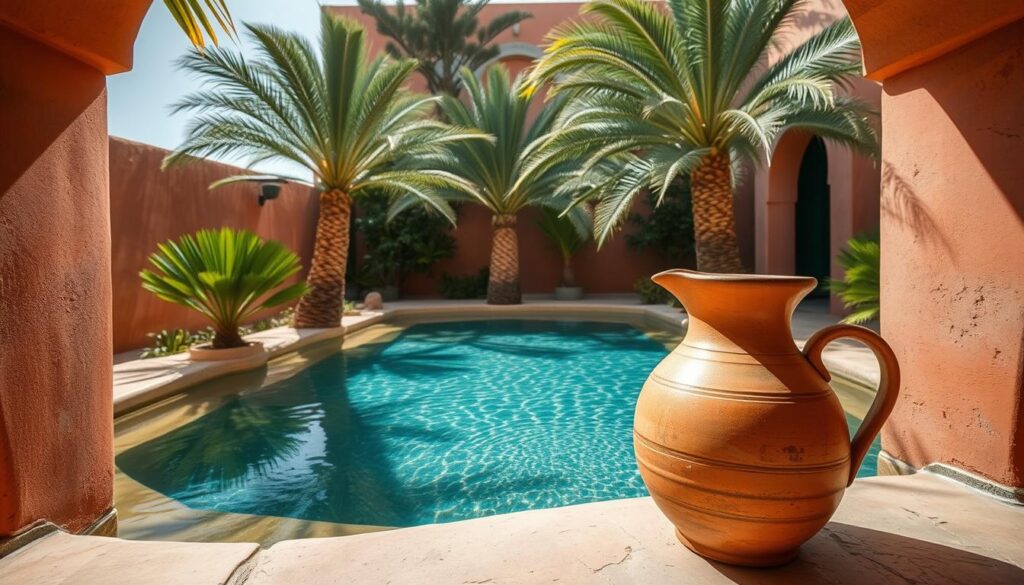
Water Purification Methods for Travelers
For those wanting to save money or the planet, purification methods work. They make tap water or natural water safe to drink.
Portable Filters and Purification Devices
LifeStraw and similar devices remove harmful stuff from water. They make it safe to drink.
Chemical Treatments and Boiling Methods
Chemical treatments, like chlorine tablets, purify water. Boiling is also effective, needing a heat source. Both are cheap and flexible.
Cost Comparison of Different Water Options
| Water Option | Cost per Liter | Convenience Level |
|---|---|---|
| Bottled Water | $1.50 | High |
| Portable Filters | $0.05 (after initial investment) | Medium |
| Chemical Treatments | $0.02 per treatment | Low |
| Boiling | $0 (if fuel is available) | Low |
The table shows bottled water is pricey but convenient. Purification methods are cheaper, great for long trips.
“The key to staying healthy while traveling is maintaining proper hydration. With the right knowledge and tools, travelers can enjoy Morocco without worrying about water safety.”
Staying Hydrated in Different Moroccan Regions
When traveling in Morocco, it’s important to stay hydrated. The country’s varied landscapes, from the Sahara Desert to the humid coast and cool Atlas Mountains, each pose unique challenges.
Desert Travel Hydration Strategies
Traveling in the Sahara Desert requires careful planning for hydration. The hot, dry climate can quickly dehydrate you.
Sahara Excursions and Water Planning
For Sahara excursions, pack enough water. “Drink at least one liter of water per hour of moderate activity in temperatures above 35°C (95°F),” advises a seasoned desert guide.
Emergency Water Sources in Remote Areas
In remote desert areas, finding emergency water sources is critical. Look for natural water indicators like oases or areas with lush vegetation.
Coastal Areas and Water Considerations
Morocco’s coastal regions, such as Essaouira and Rabat, have a milder climate than the desert. Yet, staying hydrated is key, even during physical activities.
Mountain Regions and Natural Water Sources
The Atlas Mountains offer a cooler climate and natural water sources like streams and springs. When trekking, carry enough water and know how to purify water from natural sources if needed.
Understanding hydration needs for different regions is essential for your Moroccan adventure. Whether exploring the desert, relaxing on the coast, or trekking in the mountains, staying hydrated is vital for a healthy and enjoyable trip.
Health Benefits of Proper Hydration While Traveling
Staying hydrated is key to keeping your health and energy up while exploring Morocco. Traveling can stress your body in many ways, like changes in climate and diet. Drinking enough water is very important.
Preventing Travel-Related Illnesses Through Hydration
Drinking water can stop common travel sicknesses like diarrhea and headaches. Staying hydrated helps your body work better, lowering the chance of these problems. This makes your trip smoother.
Optimizing Energy Levels for Sightseeing
Drinking water boosts your energy. Even a little dehydration can make you tired and dizzy. Drinking water all day keeps your energy up and makes you feel good.
Adapting to Morocco’s Climate Through Proper Water Intake
Morocco’s weather changes a lot, from cool mountains to hot deserts. Changing how much water you drink based on the weather is key to staying hydrated.
Seasonal Hydration Adjustments
In hot months or desert trips, drink more water. In cooler areas or winter, you might need to drink less.
Special Considerations for High-Risk Travelers
Some people, like older adults or those with health issues, need to drink more water. Talking to a doctor before you go can help you figure out how much water you need.
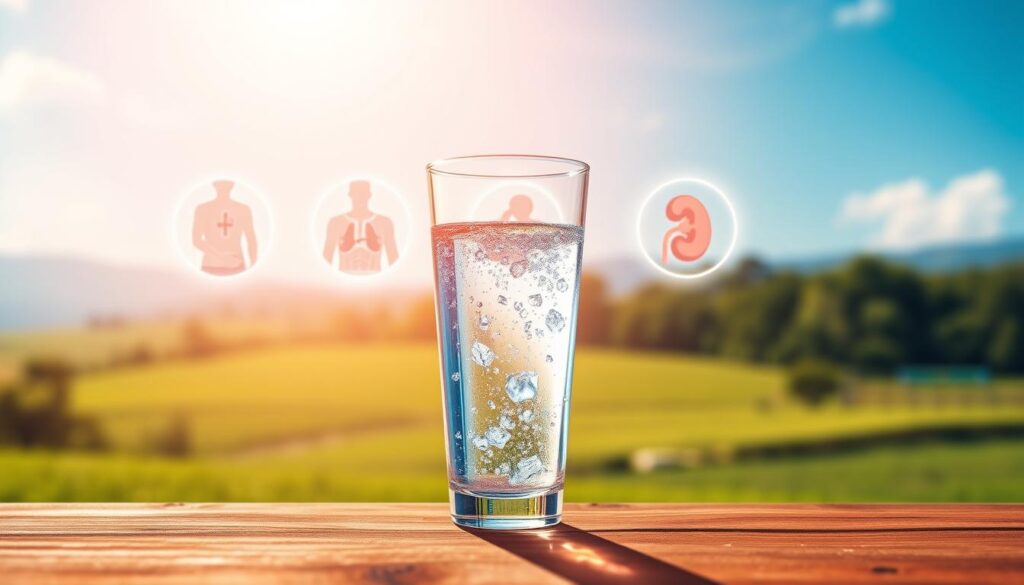
Cultural Aspects of Water Consumption in Morocco
Learning about water use in Morocco can make your visit better. Water is key in Moroccan life, used for more than just drinking. It’s also part of social and religious acts.
Traditional Moroccan Beverages for Hydration
Morocco has many traditional drinks that are both refreshing and show off local culture.
Mint Tea and Its Cultural Significance
Mint tea is more than a drink in Morocco. It stands for welcome and friendship. Making and serving mint tea is seen as an art, enjoyed at social events and meetings.
Fresh Juices and Healthy Drink Options
Along with mint tea, fresh fruit juices are loved. They’re tasty and full of vitamins, helping you stay hydrated.
Water Etiquette and Customs
In Morocco, water is seen as a gift from God. There are rules for using it. For example, always use your right hand when drinking.
Ramadan and Hydration Considerations for Travelers
Traveling to Morocco in Ramadan means you must respect fasting rules. Restaurants and cafes close during the day. Staying hydrated is key during the iftar meal.
By knowing and following these cultural rules, your trip to Morocco will be richer and more fun.
Practical Tips for Water Safety During Your Trip
Keeping safe from water hazards in Morocco is key. Knowing what to do and bringing the right gear can help a lot. It’s all about staying healthy and hydrated.
Essential Packing List for Water Safety
When you’re off to Morocco, don’t forget these must-haves for water safety:
- A water filter or purification tablets
- A refillable water bottle
- Oral rehydration salts
- Any personal medications for waterborne illnesses
Eating Out and Making Safe Beverage Choices
Choosing wisely when you eat out is important. Stick to bottled or filtered water. And skip ice in drinks unless you’re sure it’s safe. Many places in tourist spots use clean water, but double-check.
What to Do If You Experience Water-Related Illness
If you get sick from water, like diarrhea or vomiting, act fast. Use oral rehydration solutions to stay hydrated. If your symptoms don’t go away, see a doctor.
Emergency Contacts and Medical Facilities
Knowing where to find medical help and having emergency numbers saved can be a lifesaver. Write down important phone numbers and addresses before you need them.
Over-the-Counter Remedies Available in Morocco
Morocco has many over-the-counter medicines for common problems. Learn about local pharmacies and what they have for water sickness.
Day Trip Planning and Water Preparation
For day trips, like to rural or desert areas, plan your water carefully. Bring enough bottled or filtered water. Also, pack snacks that don’t need to be cold.
By following these tips, you can greatly improve your water safety in Morocco. This will make your trip healthier and more fun.
Conclusion: Enjoying Morocco While Staying Healthy and Hydrated
Exploring Morocco means staying healthy and hydrated. With the right tips, you can drink water safely and keep your health up. This way, you can enjoy everything Morocco has to offer.
Knowing about Morocco’s water system and quality is key. You can also use safe water options and try local drinks. This helps you avoid water-related sicknesses.
Drink water often, as Morocco’s desert climate can be hot. Follow the advice in this article to stay healthy and hydrated. This will make your trip to Morocco even better.
Now you’re ready to handle Morocco’s water situation. You can enjoy all the amazing things Morocco has to offer. And you’ll stay healthy and hydrated too.

